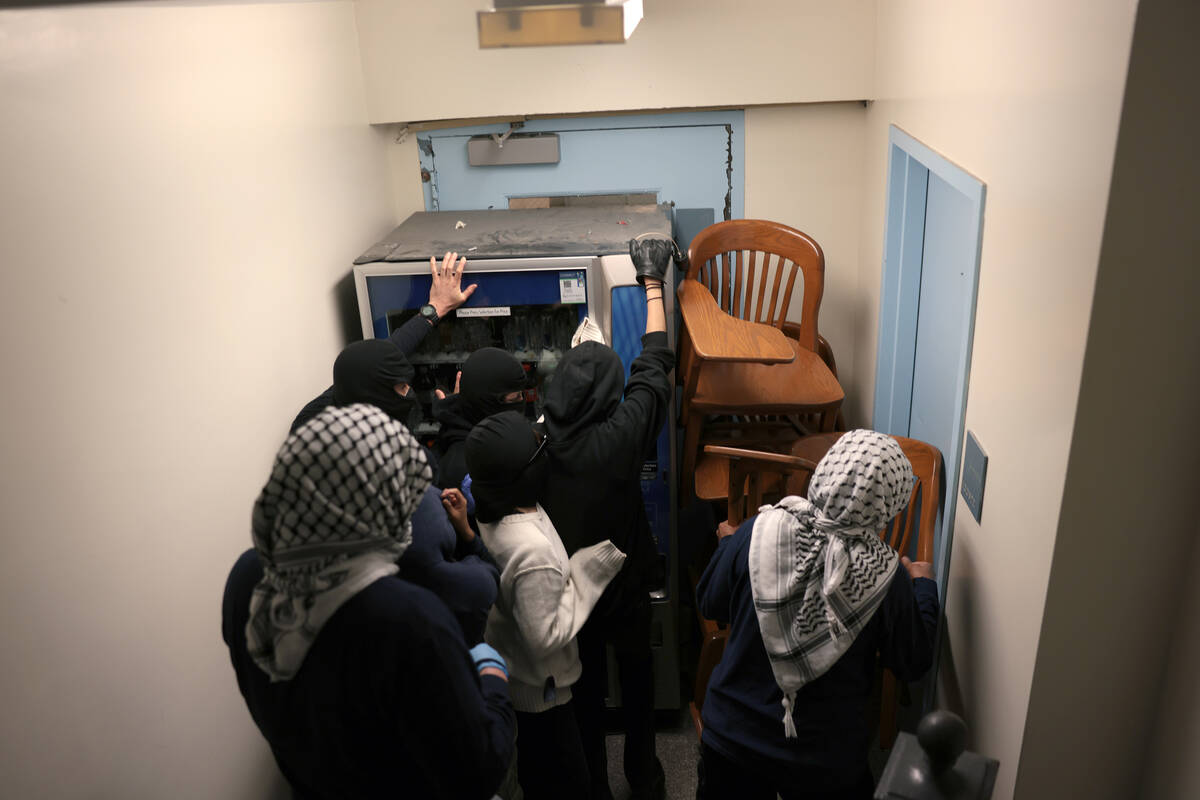Students who took over Columbia University building in Gaza protest returning to campus
NEW YORK — Columbia University hasn’t expelled students who took over Hamilton Hall as part of the pro-Palestinian protests that engulfed campus last semester — despite previous statements the protesters would face expulsion.
Records obtained by the U.S. House Committee on Education and the Workforce offered a first look at the scope of disciplinary action taken by college administrators following the short-lived takeover.
As of this month, the vast majority of the 22 students arrested inside Hamilton Hall on April 30 were considered in “good standing” with the university, records show. Three students were placed on interim suspensions without access to university housing or meal plans; one was on probation from a prior hearing. Their disciplinary cases remain open, with hearings expected to continue into the fall.
Other Columbia students arrested that night — about 27 young people who were picked up at protests in and around campus — had their disciplinary cases closed, citing “insufficient evidence.”
Since the start of the Israel-Hamas war, Columbia’s response to pro-Palestinian protests has deeply divided campus, with demonstrators and their allies criticizing the administration for cracking down on free speech, regardless of their politics in the Middle East. Last spring, civil liberties groups sued Columbia over the suspension of two pro-Palestinian student groups accused of breaking school rules.
Others on campus, including student groups with sympathies to Israel and Jewish alumni, have warned a lack of tangible consequences could allow antisemitism to fester and shut down operations again, as they did last spring when Columbia shifted to remote learning. This month, administrators restricted campus access to get ahead of potential disruptions as school resumes.
“Columbia is committed to combating antisemitism and all forms of discrimination and taking sustained, concrete action toward a campus where everyone in our community feels valued and is able to thrive,” said Samantha Slater, a Columbia spokeswoman.
“The disciplinary process is ongoing,” she added, “and we have been working to expedite the process for this large volume of violations.”
Earlier this month, Columbia president Minouche Shafik submitted her resignation, handing the reins over to interim president Dr. Katrina Armstrong, the chief executive officer of the Columbia University Irving Medical Center — an insider with some perceived distance from events that roiled the main campus last spring.
In June, Manhattan prosecutors dropped charges or offered deals to Columbia students arrested inside Hamilton Hall, citing limited video footage and that the accused were already facing disciplinary action on campus.
“I had communication with DA Bragg,” Mayor Eric Adams said in a radio interview. “He made a determination — based on those who he couldn’t get proper ID from — that the school, Columbia, is going to be addressing that on a local level. I respect his decision.”
The data was obtained as part of a broader House investigation into allegations of campus antisemitism. Earlier this month, Education Committee Chairwoman Virginia Foxx, R-N.C., threatened to subpoena Columbia over the confidential disciplinary records.
The release also contained information, current as of Aug. 6, about Columbia’s response to a series of encampments demanding the administration divest from Israel.
Forty Columbia students who were arrested at a tent demonstration — erected in mid-April while Shafik testified before Congress — were initially placed on interim suspension.
Afterward, charges were dropped by the NYPD, and nearly half have seen their disciplinary cases closed with an unspecified “alternative resolution.” Most of the remainder are in good standing as their cases proceed.
The majority of another 35 students who didn’t leave an encampment that sprung up in the former demonstration’s place are also in good standing. Six students who were already in trouble with the university were not offered an appeal.
“After careful review, it was evident that there was not enough information to substantiate participation in the encampment, therefore the interim suspensions were lifted for 29 students and charges were dismissed,” read the document.
Disciplinary cases may be reviewed by two entities at Columbia: Typically, through the University Judicial Board — part of a governing body called the University Senate of faculty, staff and students — or sometimes by the administrator-led Center for Student Success and Intervention. Under the latter process, which faced backlash this spring over a lack of transparency, students do not have the right to an attorney.
“The Senate have been demanding the University follow its own rules and run these disciplinary processes through the normal process,” said a Columbia faculty member, who spoke on the condition of anonymity. “We’re hopeful that the new leadership is going to be a taking a fresh look at all of this.”






















